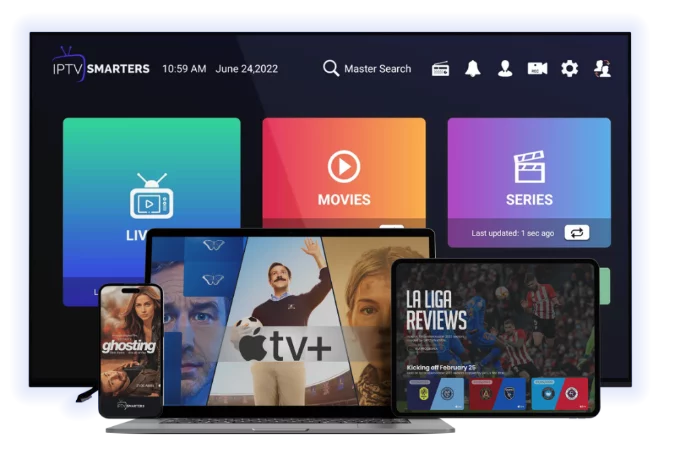1. Energy-Efficient Data Centers
One of the biggest contributors to the environmental impact of streaming services is the energy consumption of data centers. Data centers house the servers that store and deliver content to users. These centers can consume enormous amounts of electricity, primarily for cooling systems and hardware operations.
IPTV EVER has partnered with data centers that prioritize energy efficiency and sustainability. These data centers use advanced technologies to reduce their energy consumption, such as utilizing renewable energy sources like solar and wind power, and employing energy-efficient cooling systems. By choosing to work with environmentally conscious data centers, IPTV EVER helps reduce the overall carbon footprint of streaming content delivery.
2. Use of Renewable Energy Sources
To further reduce its environmental impact, IPTV EVER is making a commitment to use renewable energy sources to power its operations. Many tech companies are shifting toward solar, wind, and hydroelectric power to meet their energy needs, and IPTV EVER is following suit. By sourcing energy from renewable resources, IPTV EVER ensures that the streaming process is more sustainable and less reliant on fossil fuels.
As more streaming services transition to renewable energy, the overall impact on the environment will be significantly reduced, and IPTV EVER is proud to be part of this movement toward a greener streaming future.
3. Optimized Content Delivery and Data Transmission
IPTV EVER is focused on reducing the amount of data required to stream content without compromising quality. By optimizing video compression algorithms and content delivery networks (CDNs), IPTV EVER minimizes the energy consumption associated with data transmission.
For instance, IPTV EVER uses adaptive bitrate streaming technology, which adjusts the quality of the video based on the viewer’s internet connection. This reduces the amount of data transferred and minimizes the energy required for streaming. By using efficient data transmission methods, IPTV EVER is helping to reduce the overall environmental impact of streaming.
4. Carbon Offset Programs
In addition to optimizing its operations for energy efficiency, IPTV EVER participates in carbon offset programs to neutralize its emissions. Carbon offset programs involve investing in projects that reduce or capture carbon emissions, such as reforestation, renewable energy development, and methane capture.
By contributing to these programs, IPTV EVER helps offset its carbon footprint, ensuring that its streaming services are as environmentally friendly as possible. These efforts are part of IPTV EVER’s broader commitment to sustainability and responsible business practices.
5. Encouraging Eco-Friendly User Behavior
IPTV EVER also encourages its users to reduce their environmental impact by promoting energy-saving practices. For example, the platform provides users with tips on how to minimize energy usage while streaming, such as adjusting video resolution settings or using devices with low energy consumption.
By promoting eco-friendly practices both in its operations and among its users, IPTV EVER is contributing to a more sustainable future for digital entertainment.
Conclusion: IPTV EVER’s Commitment to a Greener Streaming Future
As the streaming industry continues to grow, it is essential for companies like IPTV EVER to prioritize sustainability and reduce their environmental impact. Through energy-efficient data centers, the use of renewable energy, optimized data delivery, carbon offset programs, and user education, IPTV EVER is taking significant steps to make streaming more environmentally friendly. With its commitment to sustainability, IPTV EVER is leading the way in creating a greener future for streaming, ensuring that users can enjoy their favorite content while minimizing their carbon footprint.

